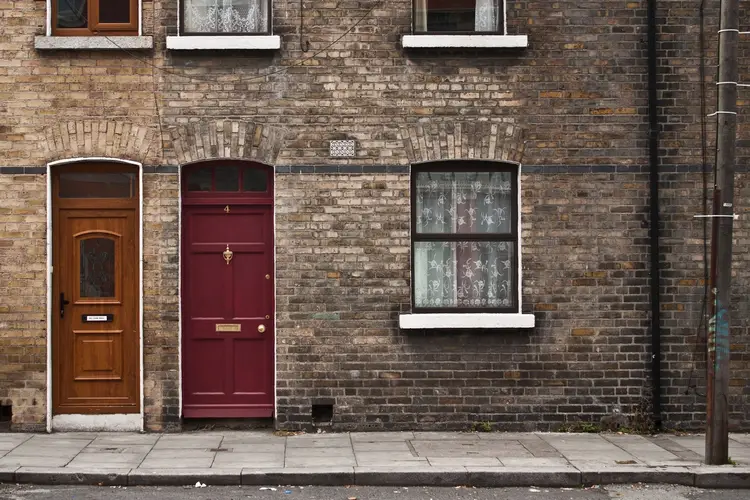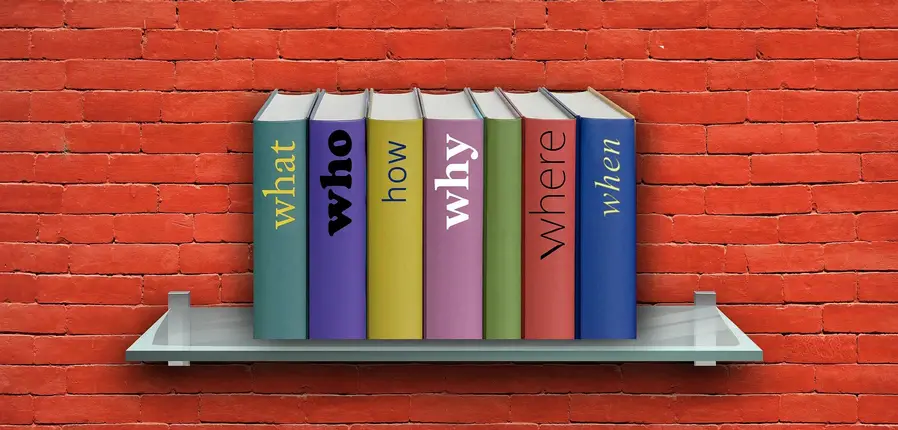
Having just negotiated and ‘actioned’ my best property lease option so far, this inspired me to write about property lease options and how these fit into property investing. But not only for property investing, as property lease options can be used equally as well as a strategy by home owners to secure a home to live in too. Please read on to see why this makes sense for certain would-be homeowners.
Property lease options are agreements that give control over property, and as a general rule to generate an income from them, but they can equally give control over a property for you to live in too. The option contract gives you the right, but not the obligation, to buy the property in the future.
There’s quite a lot to write about when it comes to property lease options, so forgive me if this article is on the long side. But I assure you it will be worth you reading the whole article from beginning to end if you have an interest in property lease options. Be this as a property investor or as a person looking to buy a house to live in.

How does a lease option in real estate work?
But first things first, let me explain what’s involved in structuring a lease option for it to work for you. But as an aside, this is written from a contractual viewpoint for those living in the UK, as options are legal in the UK.
However, lease options work just as well in the United States of America and Australia. As far as the legal side of things is concerned that’s all you need to know. What this article provides is the framework for you to understand the concept and to grasp how it all works. From your point of view, if you’re reading this article sitting in the UK, the USA or Australia, the concepts remain the same.
However, the quirks within the legal paperwork that sits behind the concept of a property lease option is what might be slightly different from whether you live in the UK, the USA or Australia. But none of these differences will not stop you from seeking to buy property using property lease options.
Which means you don’t need to worry about the legal paper work, as you should leave this to the lawyers, just like you do when you buy and sell a property in the conventional way. Not many people would agree to buy a house and then set about working through the legal paperwork themselves. The same applies to property lease options.
Your aim should be to agree the main terms (see below) and pass this information on to your solicitor, ideally in the form of a signed “Heads of Terms“.

What agreements are required for property lease options?
The phrase “lease option” is actually not quite correct and should in fact be “Property Management Options” instead. This is because the lease option agreement contracts required in the UK include the following:
- Option Agreement: The option agreement will among other legal terms include the agreed option fee, the option period and the purchase price you can buy the property in the future. The future purchase will be to buy the property in the conventional way using a contract of sale with an exchange date and a completion date as normal. But generally speaking exchange and completion happens on the same day.
- Management Agreement: The management agreement will among other things include the obligations of the “manager”, i.e. the buyer, and the obligations of the seller or owner of the property. Your obligations as a buyer would include maintaining the property, paying the mortgage payments and paying the utilities and other costs associated with the property.
- Power of Attorney: The power of attorney is to grant you as the buyer authority to take control of the property.
The above agreements are those that are generally required when entering into property lease options in the UK. But you are likely to have very similar agreements if you are entering into this type of contract in the USA and Australia too.
Lease option agreement template UK
I suggest that you don’t search for a lease option agreement template if you’re in the UK, but instead learn the concepts behind property lease options so you can negotiate the deal. Then pass this information on to your solicitor for them to draw up the lease option agreements for you.
What are the key components of property lease options?
Putting the legal paperwork to one side, as this is what your solicitor or lawyer is there for, when you negotiate a property lease option these are the key terms that need to be agreed between you and the property owner:
1. All options contracts require an upfront payment
All option agreements require an amount of money to change hands between the buyer (i.e. you) and the seller (i.e. the property owner). This transfer of money is what makes an option agreement legally binding, and is referred to as consideration.
The same is true in the UK, the USA and Australia. This is known as the “Option Fee” and can be as little as just £1 or $1.
2. Lease options need to include an agreement period
The option and management contracts comprising the property lease option will include an option period. The option period runs for an agreed period from the date the agreement starts, after which if you haven’t used your option to buy, you have to hand the property back to the owner.
3. The management agreement includes a monthly payment
The management agreement at the very least will include an agreed monthly payment the buyer will pay the seller during the period of the property lease option. As a general rule, the monthly payment will usually be whatever the owner needs to cover their mortgage.
4. The option contract will include a purchase price
The option agreement will include the purchase price, which is often referred to as the strike price, that you have agreed to buy the property for in the future. The purchase price is only valid during the term of the option period, after which the option to buy at this price comes to an end.
I know you probably have a burning question (or at least I am guessing you have this burning question in your head right now), which is; why would anyone agree to sell a property on a property lease option?

Why would a property owner sell on a property lease option?
Why any property owner would sell their property on a lease option is probably the leading question asked by most would-be lease option investors and property owners.
But before I answer this question about why people sell with property lease options, it’s worth pointing out that people do sell their property on property lease options.
The reason I know this is because I have bought property on lease options both in the UK and in Australia. In fact my first property lease option deal was for nine acres of beach front property in Australia, and although I’ve not purchased property on a property lease option in America, I know for a fact these work there too.
My most recent property lease option includes 12 investment properties in the UK, which are worth over £2 million. I negotiated these 12 properties and secured them for a total option fee of £12. Or in other words, this equates to an option fee of just £1 per property, which goes back to point one above and the upfront payment or “Option Fee”.
Now you know it can be done, what type of person would agree to sell their property on a property lease option?
Why do property owners sell on property lease options?
1. Owners with negative equity consider lease options
Property lease options are often an attractive deal for property owners who are in negative equity.
As a general rule, property owners in negative equity are trapped and are unable to sell their property in the conventional way. The option period allows time for the property value to increase above what’s outstanding on the mortgage, so that when the buyer agrees to buy, the mortgage can be repaid on completion.
A property lease option is best explained by way of an example:
Let’s assume that Sam and Sue own a property in Manchester and Sam needs to relocate for work to Leeds. Assuming their home is worth £250,000, but the balance on their mortgage is £255,000 and they also have other debt secured on the property amounting to £15,000, they are in negative equity to the tune of £20,000. If Sam and Sue don’t have the £20,000, nor do they have the selling costs, which are likely to be a further £4,500, they are stuck.
They can’t accept a cheeky offer to sell quickly at below market value, as this won’t be enough to clear their mortgage. Let alone the addition secured debt. But this is when a property lease option suddenly looks quite appealing.
So long as there is sufficient time left on the mortgage (see below), the agreed option period between a lease option buyer and Sam and Sue can be set as long enough to allow time for property value to increase. Also, the purchase price (or strike price) should be agreed at a price that is at least equal to what’s owned on the mortgage together with the additional secured debt.
But if the option term can be set for an even longer period, this should give enough time for the value to increase beyond what’s owed on the mortgage. This example assumes that Sam and Sue don’t want to let their property to tenants instead in order to move to Leeds.
2. Owners wanting a quick sale accept lease options
Property lease options are as a general rule quicker to complete than conventional sales, as a mortgage is not required and a property survey is not always necessary.
This is why some property owners who are looking for a quick sale are more amenable to property lease options.
3. Lease options work well on problem properties
On the whole properties with problems are ideal for buying with a property lease option, as the option period gives time for the buyer to rectify the problem before they commit to the final purchase.
Problems might include properties with Japanese knotweed, subsidence or in a significantly bad state of repair.
4. Lease options work well on property portfolios
Property lease options are an ideal way to buy and sell property portfolios as it makes it easier for portfolio investors to find a buyer for their portfolio. It’s also a good way to mitigate tax liabilities on the sale of a property portfolio.
5. Lease options work on unmortgageable properties
Property lease options do not require a mortgage to take control of the property, which is why they are ideal for buying property that’s unmortgageable. Unmortgageable property includes badly dilapidated property, properties without kitchens, or a property with subsidence.
6. Lease options are a solution to sellers with problems
Sellers with their own problems will often want to sell their property quickly, which can include couples going through a divorce, homeowners about to be repossessed, homeowners who have been made redundant and lost their job or people selling to relocate.

How to find lease option homes or property
As a whole, one of the most difficult challenges of property lease options is finding the deals in the first place. You could say that finding property lease options is a bit like finding a needle in a haystack. But the way you find lease option homes includes the following methods:
1. Treat every property as a potential lease option
If you treat every property you view as a possible lease option and negotiate with this in mind, you are more likely to find lease option homes.
But in order to negotiate a property lease option, you need to be speaking directly with the vendor of the property, and not the estate agent.
Using social media platforms like Facebook or Twitter is one way in which you can find lease option homes. But you may need to invest some money in online social media advertising to get your message out there, unless you are prepared to post on a regular basis.
3. Forums are a way of finding lease option homes
You may be able to find lease option homes by joining a forum and starting out by helping people with their problems. Be careful not to be spammy and be as helpful as possible on the forum by answering questions. This requires patience and may take some time.
4. You can find lease option homes in classified ads
If you find homeowners who are selling their home in the classified ads in your local newspapers, you may be able to find lease option homes by contacting the vendors directly.
You may also find property landlords selling their investment properties this way too. These present a good opportunity for you to negotiate a property lease option deal.
5. Gumtree is a possible source of lease option homes
In a similar way to classified ads, people who try to sell their home on Gumtree are often good candidates for negotiating to buy their home on a property option contract.
6. Old listings on Rightmove are often lease options
Contacting home owners with a home for sale on Rightmove where the listing is more than six months old make good property lease option candidates. But you need to be able to speak directly with the vendor for the negotiations to work and not with the estate agent.
7. Getting to know your local estate agents
You can find property lease option homes from your friendly local estate agent by you striking up a good working relationship with them.
If you explain what your intensions are, and if the estate understands what you are saying, this is a possible way to find property lease options. However, you may need to agree to pay the estate agents commission as part of the deal, otherwise the estate agent stands to lose out.

Why is buying property using property lease option a good idea?
There are a number of benefits to buying property with property lease options, which includes:
1. Lease options require a lower upfront investment
As a general rule, the option fee on property lease options is less than the deposit required when you buy a house in the conventional way.
The option fee can be as low as £1 or $1, or whatever you can agree with the seller as upfront consideration.
2. You don’t need a mortgage with lease options
As you are not actually buying the property when you enter into a property lease option, you don’t need a mortgage. This is beneficial for buyers who can’t get a mortgage if they have a bad credit report or if they are new immigrants to the country.
3. Lease options delay when Stamp Duty is paid
Entering into a lease option agreement with the seller of a house means you are not actually buying the property at the outset. This means you won’t be liable for stamp duty at the start of the option contract.
However, when you decide to buy the property, this is when you have to pay stamp duty.
4. Lease options benefit buyers with little or no deposit
For any property investor or first time buyer looking to buy property who don’t have enough of a deposit to buy a house, a property lease option is a possible solution. This assumes a low option fee can be negotiated for an amount the buyer can afford.
5. Sellers save estate agent fees with lease options
As a general rule, sellers will save on estate agent fees if they sell their house on a property lease option. However, if the house has already been listed for sale with an estate agent, for goodwill purposes the seller or the buyer may wish to pay the agent’s commission.

Why property lease options work for buying a home
If you are looking to buy a home to live and, but you don’t have a large enough deposit, or you’re unable to raise a mortgage, a property lease option offers another way for you to buy a home. However, it’s important to understand that property lease options are not always easy to find.
Make sure that if you are looking for a property to live in, this needs to have a residential mortgage rather than a buy to let mortgage. This is because it’s against the terms and conditions of a buy to let mortgage for an owner to live in it.
Whilst the seller is still the legal and on the title deeds during the option period, this doesn’t mean you can live in the property.
Final thoughts on property lease options
In my opinion, you should only ever enter into a property lease option agreement with the seller of a house if you intend to exercise your option to buy. If it’s never your intention to actually buy the property, you shouldn’t be entering into the agreement.
When you are buying a property on a lease option you and the seller should always be separately legally represented. But it’s important to find a solicitor who understands property lease options, as not all do and some shy away from them altogether.
It’s vitally important to make sure both solicitors understand property lease options, otherwise the deal is likely to fail.
When you are negotiating the option period, this should be less than the term remaining on the mortgage secured on the property.
Also, be careful when negotiating the purchase price in the option agreement, as property prices can go up or go down.
If property prices have gone down and the house is worth less than the purchase price in the option agreement, it wouldn’t make sense to complete on the property for more than it’s worth. So be careful with what purchase price you agree to.
I hope you’ve enjoyed this article about property lease options
If you’ve enjoyed this article about “property lease options” please share it on your favourite social media site.
Also, if you have any questions, please feel free to comment below too. Alternatively, if you need more help, please feel free to contact us on our contact us page here. Or join the discussion and ask your question in the property forum.




